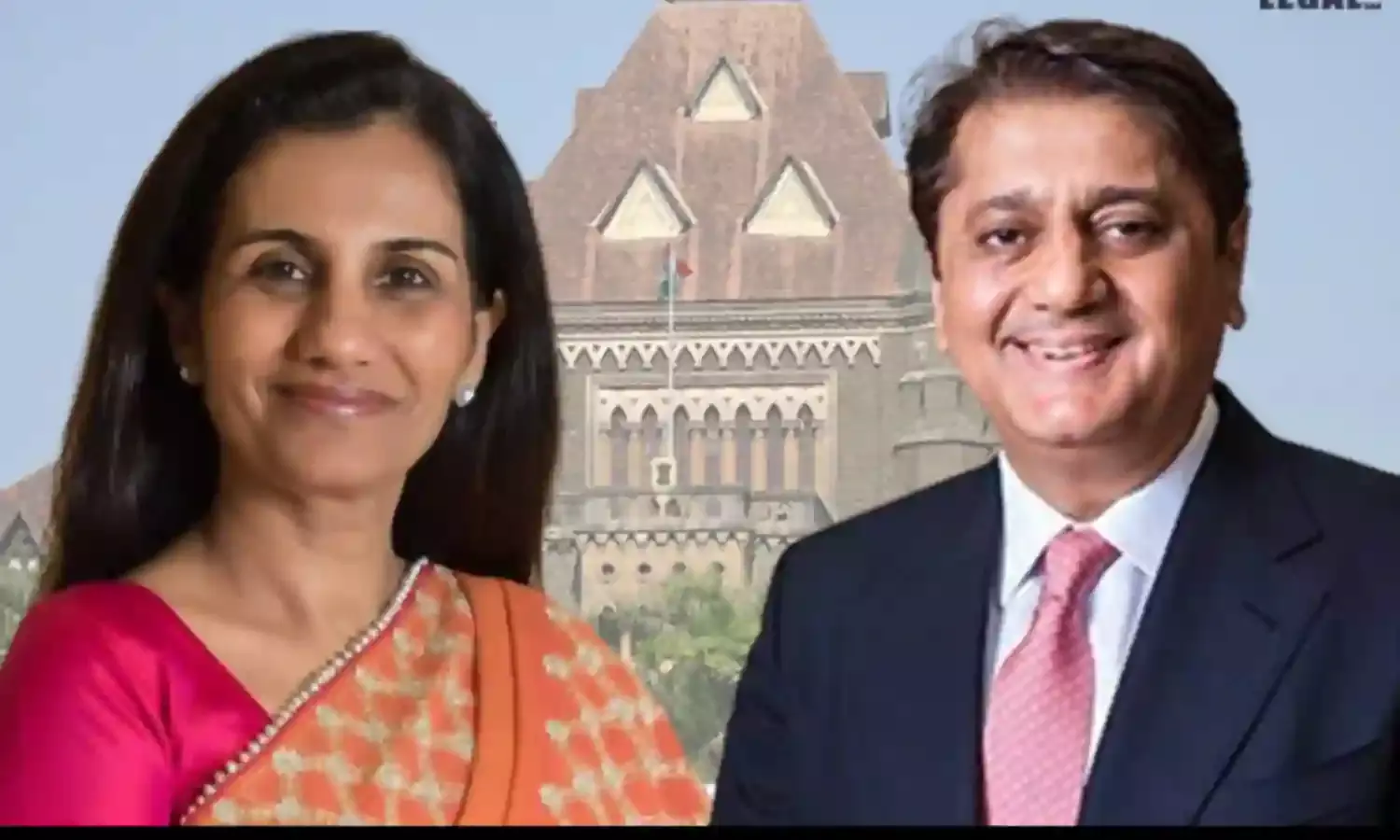Bombay High Court in ICICI-Videocon loan case releases Chanda Kochhar and Deepak Kocchar from judicial custody
The Bombay High Court ordered interim release of petitioners- Chanda Kochhar and Deepak Kochhar (former Managing Director;

Bombay High Court in ICICI-Videocon loan case releases Chanda Kochhar and Deepak Kocchar from judicial custody
The Bombay High Court ordered interim release of petitioners- Chanda Kochhar and Deepak Kochhar (former Managing Director and Chief Executive Officer of ICICI Bank) from judicial custody after they were arrested by the Chief Bureau of Investigation (CBI)- respondent on 24 December, 2022 on allegations of cheating and irregularities of Rs. 3,250 crore loan granted to the Videocon Group.
The division bench comprising of Justices Revati Mohite Dere and PK Chavan ruled that the arrest was illegal as it violated Sections 41 and 41-A of the Code of Criminal Procedure (CrPC) which mandates sending notice for appearance before the concerned police officer. The Court directed, "in the facts, we hold that the petitioners' arrest was not in accordance with law. Thus, non-compliance of the mandate of Section 41(1)(b)(ii), Section 41-A and Section 60-A of Cr.P.C will enure to the benefit of the petitioners, warranting their release on bail."
The petitioners contended that rrespondent, with blatant disregard to the rule of law, illegally and arbitrarily arrested the petitioner in clear contravention of the constitutional mandate and the provisions of Cr.P.C, pertaining to arrest and that there was no occasion whatsoever to arrest the petitioner, inasmuch as, the petitioner had cooperated with the CBI throughout, right from the time the Preliminary Enquiry (in short `PE') which was registered by the CBI till she was arrested.
The counsel pointed out the number of times, the petitioner appeared before the CBI, and had also submitted the documents to the CBI. The petitioner had also appeared before the Directorate of Enforcement (in short `ED'), after the ED registered offences under Sections 3 and 4 of the Prevention of Money Laundering Act (in short 'PMLA Act') on 31 January, 2019 against her and others and that the petitioner had co-operated with the investigation conducted by the ED.
Mr. Raja Thakare, learned Special Public Prosecutor appearing for the respondent submitted that there was no infringement/infraction of either the constitutional mandate or the statutory requirement vis-a-vis the petitioners' arrests. He submitted that the reasons for arrest have been spelt out in the arrest memo i.e., 'the petitioners were not cooperating and not disclosing true and full facts of the case' and hence, for proper investigation, the petitioners' custody was necessary, so that, the accused could be confronted with each other. It was further submitted that since the petitioners are now in judicial custody, it was always open for them to file a regular bail application under Section 439 Cr.P.C
The Court observed that it was evident that arrest was not mandatory and that the notice issued under Section 41-A was to ensure that the persons upon whom notice is served, is required to attend for `answering certain queries' relating to the case and that if an officer was satisfied that a person has committed a cognizable offence punishable with imprisonment for a term, which may be less than seven years or which may extend to the said period, with or without fine, an arrest can follow only when there is a reason to believe or suspect that the said person has committed an offence, and there is a necessity for an arrest. The conditions or necessity to arrest is stipulated in Section 41(1)(b)(ii) from (a) to (e) of the Cr.P.C.
The Court held, that the arrest may be authorized only if the concerned officer has `reason to believe' and there is `satisfaction qua an arrest' that the person has committed an offence. "The term/expression, 'reason to believe' finds place in several penal statutes. It postulates belief and the existence of reasons for that belief. Belief must be in good faith and not casual or as an ipse dixit or a pretense or on mere suspicion. It is always open for a court to examine whether the reasons for the formation of the belief have a rational connection with the formation of the belief," the bench added.
The bench highlighted that there must be a direct nexus or live link between the material before the officer and the formation of his belief. It noted, that 'reason to belief' must be based on credible material and no decision to arrest can be recorded on fancy or whimsical grounds.
Thus, the Court found it evident that the officer, in the arrest memo, in the column, `Grounds of arrest' had merely stated that 'The accused is an FIR named. She has been not cooperating and disclosing true and full facts of the Case.,' which prima-facie appeared to be contrary to the facts on record. Nothing specific had been noted/set-out therein, as mandated by Section 41(1)(b) (ii) (a) to (e) of the Cr.P.C. The only reason mentioned stated was the that the petitioners had not co-operated and did not gave true and correct disclosure.
The Court concluded that the same cannot be a ground for arrest and held that the petitioners' arrest was not in accordance with law.

